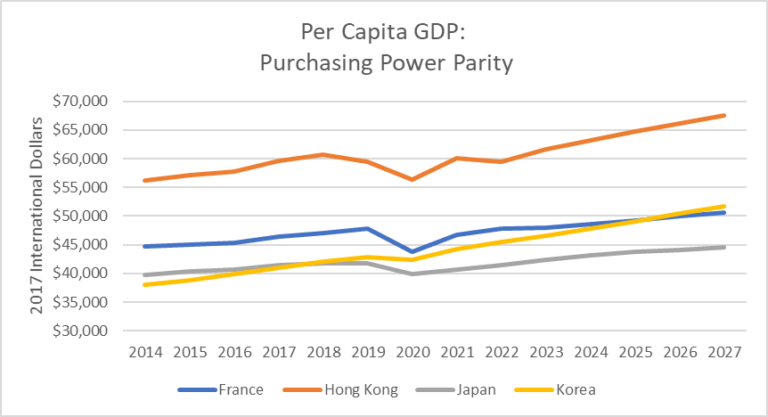From Dean Baker The New York Times had a major article reporting on how many people in South Korea, Hong Kong, and Japan are being forced to work well into their seventies because they lack sufficient income to retire. The piece presents this as a problem of aging societies, which will soon hit the United States and other rich countries with declining birth rates and limited immigration. While the plight of the older workers discussed in the article is a real problem, the cause is not the aging of the population. The reason these people don’t have adequate income to retire is a political decision about the distribution of income. If the issue was simply that too few people were working in these aging societies, we should expect to see slower per capita growth than in countries where
Topics:
Dean Baker considers the following as important: Uncategorized
This could be interesting, too:
tom writes The Ukraine war and Europe’s deepening march of folly
Stavros Mavroudeas writes CfP of Marxist Macroeconomic Modelling workgroup – 18th WAPE Forum, Istanbul August 6-8, 2025
Lars Pålsson Syll writes The pretence-of-knowledge syndrome
Dean Baker writes Crypto and Donald Trump’s strategic baseball card reserve
from Dean Baker
The New York Times had a major article reporting on how many people in South Korea, Hong Kong, and Japan are being forced to work well into their seventies because they lack sufficient income to retire. The piece presents this as a problem of aging societies, which will soon hit the United States and other rich countries with declining birth rates and limited immigration.
While the plight of the older workers discussed in the article is a real problem, the cause is not the aging of the population. The reason these people don’t have adequate income to retire is a political decision about the distribution of income.
If the issue was simply that too few people were working in these aging societies, we should expect to see slower per capita growth than in countries where aging is less of a problem. That is not the case. The figure below shows real per capita income in these three countries from 2014, along with projections to 2027, as well as France, which has maintained a relatively high birth rate.
Source: International Monetary Fund.
As can be seen, both Korea and Hong Kong have been seeing more rapid per capita GDP growth than France and are projected to continue to do so, with Japan’s growth rate virtually identical over this period. Korea is projected to maintain a 2.4 percent growth rate, while Hong Kong is projected to have a 1.4 percent annual growth rate. By comparison, France is projected to have a 0.94 percent growth rate, only slightly higher than Japan’s 0.9 percent rate.
The conventional story of a country facing problems due to aging would be that it stops seeing per capita income growth, and could even see declines, as the ratio of workers to total population falls. Two of the three countries highlighted are sustaining considerably more rapid per capita growth than a country that is less affected by an aging population. In the third case, the growth is essentially identical.
This means that the reason older people are unable to retire in these countries is not the aging of the population, but the political decision to not provide adequate support for the elderly population. In short, the problem is political, not demographics.

